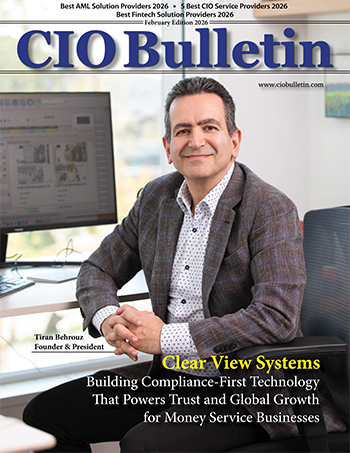Home Technology Science and technology 10 Top PHP CMS Platforms for B...
Science And Technology

CIO Bulletin
12 December, 2024
It does not matter whether you are designing a corporate website, a blog or an e-commerce portal, a content management system would enable you to handle the content, design, and functionality of your website rather than depending on coding languages. Today, there are diverse ranges of CMS available in the market wherein each provides a distinctive functionality to meet several business purposes. However, while choosing a reliable CMS for a business, you should make sure that its features synchronize with your objectives.
Best PHP CMS Platforms for Building Robust Business Websites
Listed below are some of the sought-after CMS platforms utilized by a PHP application development company to create a powerful business website:
1. WordPress
WordPress is a famous content management system featuring a user-friendly interface. There are several customizing options and a diverse range of themes making it one of the preferred platforms by developers. Also, it doesn’t demand any prior coding experience.
2. Drupal
Drupal is yet another robust CMS that would help you in creating complex websites. Besides, it does provide a vast option for modification purposes and possesses remarkable flexibility.
3. Joomla
Joomla is a versatile CMS, which is utilized by small-scale companies for web development in PHP. This platform contains powerful features and is user-friendly, thereby enabling the developers to incorporate robust customized features.
4. Shopify
Shopify is an ideal option for retailers who intend to provide efficient services. This hosted e-commerce portal would help the retailers in operating an online store with ease. But it focuses more on flexibility and less on features.
5. Adobe Commerce
Adobe Commerce is an open-source e-commerce-based portal that ensures optimal versatility and scalability. This platform contains features that match the size of various online stores and is perfect for highly tailored B2B and B2C.
6. Contentful
Contentful is a headless CMS where content is not interconnected with a web page and remains within an API in the form of data. It offers powerful features like user management, additional app support, etc. But owing to its complexity, this platform is not suitable for users who are not aware of coding languages.
7. Wix
Wix features a drag-and-drop interface, 100+ fonts and more than eight hundred customized templates, capable of creating a tailored website.
8. TYPO3
TYPO3 is a CMS platform that would help developers in designing multilingual websites. This platform is quite popular amongst large-scale firms due to its optimal scalability and security.
9. PrestaShop
PrestaShop is a popular CMS utilized by small and medium-scale firms to design e-commerce-based websites. Due to the presence of integrated features, they could design an online store with ease.
10. HubSpot CMS
HubSpot CMS is currently one of the popular CMS options for designing a customized site and does not demand frequent updates. Plus, its user-friendly tools and effortless development process makes HubSpot CMS ideal for even the rookies.
Let's examine some of the key features of a CMS, which will help you to design and run a website:
|
Feature |
Description |
|
User-Friendly Dashboard |
CMS would enable users to handle each task, such as tracking threats, user activities, installation of plugins, and assessing performance analytics with ease. |
|
Highly Responsive Themes |
You should pay close attention while choosing a theme offered by various CMS platforms since it plays a crucial role in creating an aesthetic appeal amongst the users. For example, while designing an e-commerce site, its theme should contain a grid layout and drop-down navigation support as well. Make sure that the theme is responsive so that each post uploaded to your site is compatible on various devices. |
|
Robust Content Editor and Publishing Tools |
You have to make sure that you possess a robust content editor to design and publish various types of content easily. It includes blog posts that feature custom layouts and landing pages with default resources. |
|
Backups and Version Control |
Apart from publishing and editing features, you should focus on having a content management system that is capable of saving and monitoring the work. It is essential to review the hosting plan to make sure that the backup services are available. |
|
Ability to Support Multiple Languages |
You should focus on acquiring a CMS that features multiple languages and is capable of reaching a large group of target audiences across the globe. In addition to designing multi-language variants, you will be able to conduct a test on them. |
|
Publishing Controls |
There are possibilities of publishing content on your site by more people regardless of the size of your business. CMS would assist you in creating a smooth workflow for designing and approval of creative assets. |
|
Default SEO Tools |
A CMS featuring default SEO tools is helpful for content optimization, thereby boosting the rankings in search engine result pages. However, you have to make sure that the platform is SEO-friendly and it utilizes appropriate HTML markup along with highly responsive design elements. |
|
Powerful Integrations |
As CMS is not capable of managing each process in a business website, it must depend on integration capabilities that allow third-party software for a smooth workflow. By doing so, it would ensure a smooth flow of data between applications and assess the website content. |
The demand for PHP is clearly shown in the chart given below:

Source : windzoon
Conclusion
Picking a reliable CMS platform that matches the needs of your business is a complicated process. The long-term benefits, functionality, and scalability of your website are based on the decisions made by you. Here, we focused on some of the popular CMS platforms wherein each has its pros and cons.
Nevertheless, we would recommend you seek the help of a professional CMS development service provider to assist you in selecting an appropriate CMS platform. This would ensure a smooth workflow in your business.

Insurance and capital markets







